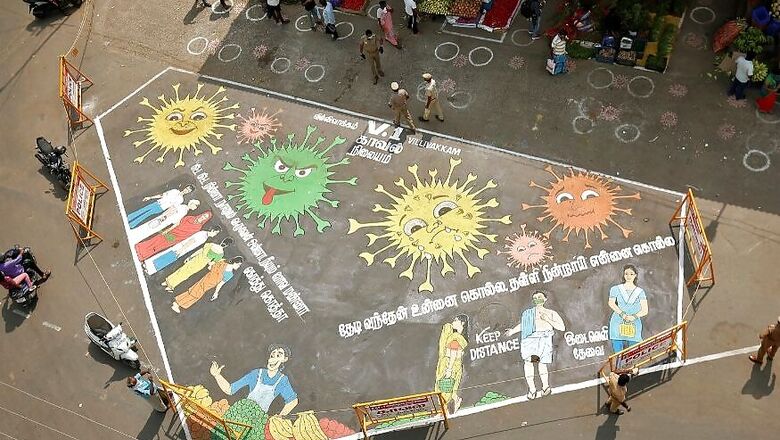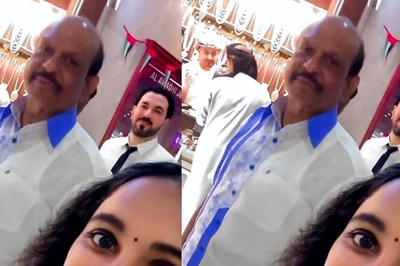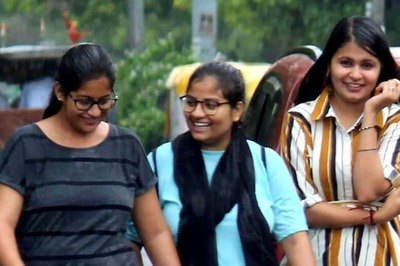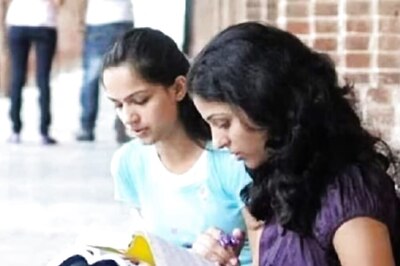
views
India has opened up after 11 weeks of total and partial lockdown, except in some pockets defined as containment zones. Living in lockdown has been both difficult and easy. Difficult because we were not used to being at home for such long periods and in complete social isolation. Easy because you were in your home and didn’t have to deal with challenges of how to handle crowds or negotiate people around you, outside your home, your workplace and in public places. Now that India has opened up, this is by far the most challenging situation to be in.
How does one navigate in a market, office, or public transport? What should one do during morning walks in a park or a road near one's home? From what I have observed, there are three broad approaches being followed by fellow Indians.
1. Stay away from people as much as you can. Practice physical distancing strictly when you are in public. Don’t venture out if you can avoid it.
2. The novel coronavirus is here to stay. One has to learn to live with it. If you need to be in a public place, so be it. Once people have come out and it’s business as usual, herd immunity will kick in. Human bodies will develop immunity when they are exposed to each other over a period of time.
3. No particular opinion. Or let’s say, confused. These people tend to get influenced by their near and dear ones or those who they trust. They can change their stand depending on who they are listening to. Or they stay firm on one of the two approaches if their trust and conviction in their influencer is total or significant.
Most of the people I know subscribe to the first perspective. They believe it is best to be safe than sorry. A few of them are so paranoid as to not even allow any visitor into their home, including support staff, and have turned their residence into a super-sanitised dwelling place.
I met the second category of people when I had to rush out of town on a medical emergency last weekend. At the airport, while queuing up, nine out of ten people did not care about distancing. The solitary person who did, was looked at with suspicion by fellow travellers, as if she or he belonged to a different planet. Though there were demarcated signs on the airport floor specifying the physical distance to be observed, nearly three-fourths were either oblivious or just didn’t bother. I felt the passengers queuing in front of and behind me come too close for my comfort, almost as if they are testing me.
I faced almost the same situation when I accompanied my mother to the hospital. All signs were in place. There were clear X marks on benches which were difficult to miss. In some areas, I spotted a note not to sit there. From what I saw, it was partially followed. From time to time, both at the airport and the hospital, one saw officials step in to thwart violations. But it was not possible all the time.
In a large country, it is not unusual to have divergent opinions. However, I kept thinking on my return flight home, how—as part of our future health strategy—two extreme approaches would impact the health and lives of people in the time of coronavirus. Would it be counterproductive? Does it help to have one uniform strategy?
While the government is advocating social distancing, there is still some confusion in the minds of people whether herd immunity works or not. Even on the issue of community transmission, there seems to be two different voices. The Delhi health minister clearly said there have been Covid-19 cases in the city where source of transmission is unknown but it is for the central government to declare if there's community transmission. The Centre, however, has done no such thing. Some medical experts have expressed the view that Delhi is in the grip of local transmission, not using the term 'community'. Is there a big difference between local and community transmission? Your guess is as good as mine.
Indians, by and large, are known to be demonstrative in their affection. Greeting a near and dear one with a hug is customary for us. Till we were locked down, we didn’t have to face this situation. While the lockdown loosens, greeting a loved one with a jhappi is a reflex action in many parts of India. Few of us realise the other person can do without such an overt act of affection. Some feel if they shy away, the recipient may brood, suspecting a thaw in the relationship. Given this cultural peculiarity, the only way to stop us is for Modiji to appear on TV and forbid us to do so. Self-regulation is not really a congenital trait for most Indians.
The author is a Chief Executive Producer at News18 Network. Views expressed are personal.




















Comments
0 comment